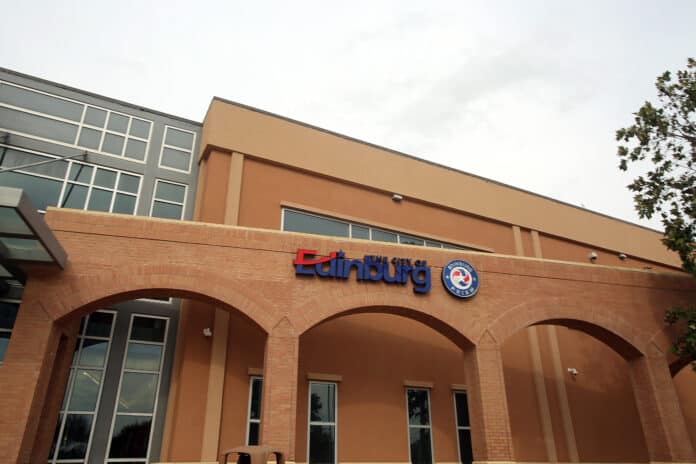
The city of Edinburg is looking into implementing a drug testing requirement for elected officials.
The city council directed legal counsel to draft a drug testing provision that, if approved, would be added to the city’s code of ethics.
The move came after a discussion on the topic behind closed doors during Tuesday’s city council meeting. Nearly all of the city council members voted for the action with the exception of Council member Johnny Garcia who voted against it.
Mayor Ramiro Garza Jr. said he supported a drug testing policy because he believed elected officials should be subject to the same standards as those in place for city employees who are subject to random drug testing.
“That is in the policy of the city of Edinburg and this obviously would just add the city council,” Garza said.
“My understanding is that there are some cities — not here in the Valley but elsewhere — that have enacted that policy,” he added. “We wanted to make sure that our city attorney followed that and came back with us with how it could be structured.”
Garza expects that City Attorney Omar Ochoa will return to the council with a draft of what they could include and, at that point, the council will hold another discussion on the issue.
Another reason he supports drug testing, Garza said, is because he believes it’s the way they should operate.
“To me, it’s all about building trust in the community,” Garza said. “I think elected officials, we should be held to a higher standard as far as serving our community and I think this speaks to that and I’m all for that.”
“We’re here to improve our community and we want to make sure that we have that trust with the community in anything that we do,” he added.
Garcia, the lone vote against the possible drug testing policy, said he wasn’t against drug testing, itself, but there were a few things he believed that gave him concern.
“Number one, as elected officials, there is really no consequence yet — at the moment — if you are, let’s say, to be under the influence of an alcohol or drug,” Garcia said, “because we’re elected by the people so we don’t fall under the same guidelines as an actual city employee.”
Secondly, he said random drug tests would not be ideal for someone like him who is always on-call for work.
“I’m in a profession where I’m on call 24/7 so if I’m dealing with a family at that particular time, how would I arrange to go do a drug test?” Garcia said. “You can’t say, ‘Well, can you schedule me for a different day?’ because now you don’t know if the person’s being ethical and they’re waiting to get clean or what the situation is.”
Additionally, he said the city had many ongoing projects that he perceives as more important than a drug testing policy.
“I myself, for example, I’ve never done alcohol in my life and I’ve never done a drug in my life so it’s not that I have a problem taking a drug test,” Garcia said, “I just feel that we should be focusing on our employees and other incentives to keep our employees.”
Regarding consequences, Garza said if employees test positive, there are disciplinary actions described in the policy.
“Obviously, for us, it’s following the city charter,” he said. “Anything that we do, we have to follow our city charter either way and so … that’s what I think our city attorney is going to research and come up with to ensure that at the end, no matter what we have in place, that we’re following our city charter.”
If approved, the drug testing policy would be a part of the ethics policy for elected officials that the council adopted in March.
“That code of ethics that was approved was to ensure that us, as elected officials, follow what we ask our employees to follow,” said Garza, the mayor. “I believe this requirement of drug testing would follow the same mindset to ensure we’re doing what employees are asked to do in terms of the policy that’s in place.”



